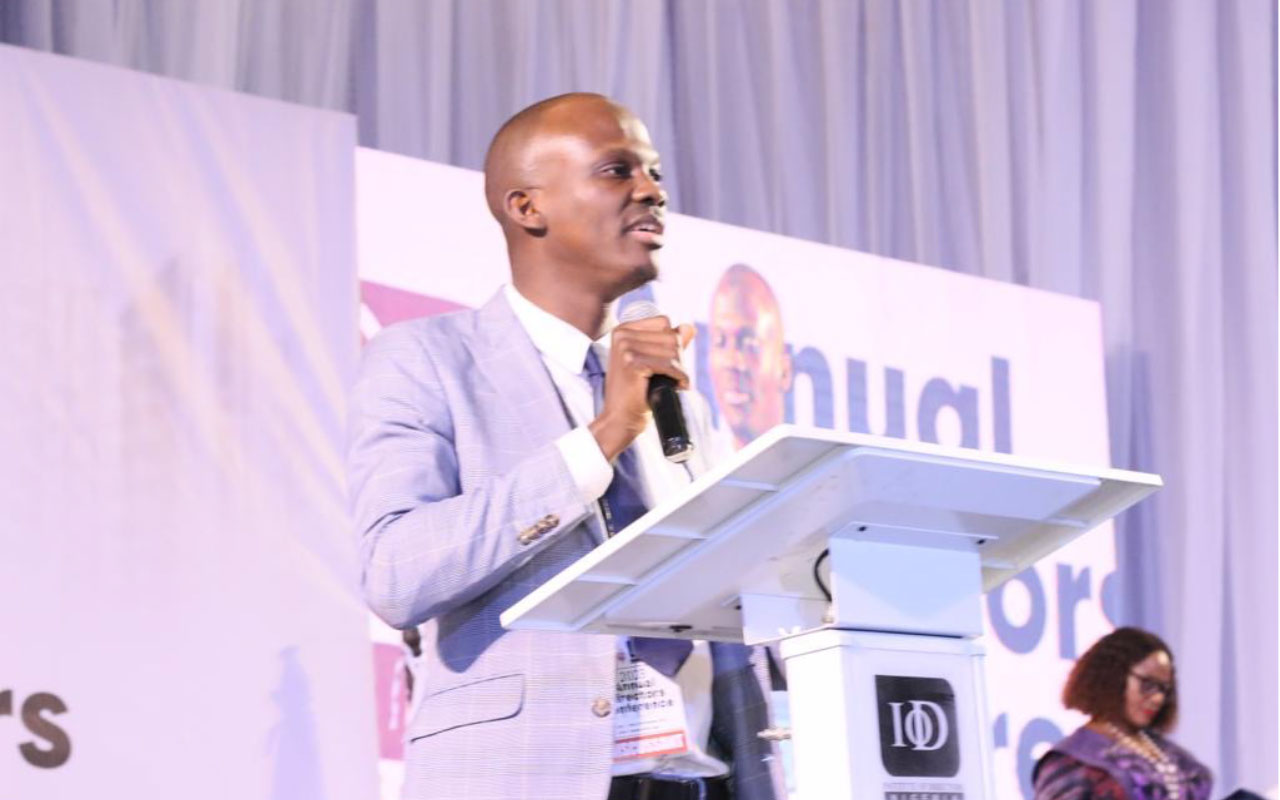 Organisations like individuals sometimes experience turbulent times. At its turbulent period, the board of directors and the human resource departments are expected to put on their thinking caps and push out a-game ideas to weather the storm.
Organisations like individuals sometimes experience turbulent times. At its turbulent period, the board of directors and the human resource departments are expected to put on their thinking caps and push out a-game ideas to weather the storm.
And the Founder of TEXEM, United Kingdom, Dr Alim Abubakre, spoke on the leadership expected of a company’s board and its human resources during its turbulent times recently.
Speaking at the Institute of Directors Nigeria conference, around the topic, ‘the strategic leadership role of the board during turbulent times’, Abubakre noted that in the crucible of weak institutions, limited infrastructure, fierce competition, soaring inflation, and currency risks, the board’s strategic leadership becomes not just vital but existential.
“However, survival should not be the goal; success should be the imperative. Of course, challenges should be seen as roadblocks; but they are stepping stones for those with strategic foresight.”
He buttressed its position with drawing inspiration from boards that conquered analogous challenges in other developing nations.
“Take the Rwanda Development Board, orchestrating Rwanda’s transformation into a competitive investment haven. As Henry Mintzberg wisely stated, “Strategy is a pattern in a stream of decisions.” Lessons abound, nurture a collaborative ecosystem, leverage technology for efficiency, align policies with the nation’s vision, and champion Environment, Social, and Governance (ESG) principles. If Rwanda’s Development Board can do it, so can yours.”
According to him, in this digital age, a board’s role transcends traditional governance. He added that the board must grapple with artificial intelligence, virtual reality, big data, augmented reality, the internet of things, quantum computing, and cryptocurrency.
He argued that understanding and integrating these technologies are pivotal for sustainable success and aligning with ESG principles.
Providing some tangible solutions for directors in Nigeria, Abubakre underscored the importance of collaborative ecosystems, saying directors must foster collaboration among stakeholders. He also said that directors must align public and private efforts to tackle weak institutions and enhance social impact collectively.
He identified the role of digital literacy, stating that conscious efforts must be geared to invest in the digital literacy of board members.
“Risk management: Develop robust strategies for risk management, considering currency risks and high inflation while incorporating ESG principles. As Bob Tricker rightly said, “Good governance should not be about compliance; it should be about performance. “The Central Bank of Brazil’s board navigated economic instability through proactive risk management, incorporating sustainability.”
He stressed the place of innovation, saying directors must encourage innovative thinking, noting that Kenya’s M-Pesa, a mobile banking phenomenon, emerged from the board’s commitment to financial inclusion, showcasing a blend of innovation and social impact.
He maintained that strategic leadership demands, courage, innovation, and adaptability in turbulent times.
“As directors, you are not merely stewards; you are the architects of change. Embrace the challenges, leverage technology, foster collaboration, and champion ESG principles. Your role is not just pivotal;
it’s transformative. In the crucible of turbulence, diamonds are formed. Be the architects of Nigeria’s bright, sustainable future.
“As Peter Drucker wisely said, “Management is doing things right; leadership is doing the right things.” Let us lead with wisdom, guided by the principles of ESG, sustainability, and ethical governance.”
Similarly, speaking on ‘Human Resources as a Strategic Leader in Turbulent Times’ at the Chartered Institute of Personnel management (CIPM) annual conference with the theme, “Sustainable HR, Business, and National Development, Abubakre stated that understanding the turbulence is critical.
According to him, the human resource managers must understand the challenges facing Nigerian businesses in this era marked by high inflation, stiff competition, high talent exodus, currency risk, and geopolitical uncertainties impacting government revenue, noting that businesses in Nigeria are confronting existential threats.
“As Peter Drucker wisely said, “The greatest danger in times of turbulence is not the turbulence itself but to act with yesterday’s logic.” These turbulent times demand a paradigm shift, and Human Resources (HR) holds a pivotal role in this transformative journey.
“When HR becomes strategic, the ripple effects are transformative. Optimising performance, stimulating innovation, boosting morale, and creating sustainable competitive advantages become attainable goals. As we navigate these turbulent times, HR’s role as a strategic partner cannot be overstated.”
He concluded by admonishing HR professionals not to merely see themselves as stewards of the workforce.
“You are architects of the future. Embrace the challenges, leverage strategic HR practices, and contribute to the sustainable success of your organisations and the nation at large. In the words of Peter Drucker, “The best way to predict the future is to create it.” Let strategic HR be the catalyst in creating a sustainable future for Nigeria.”






